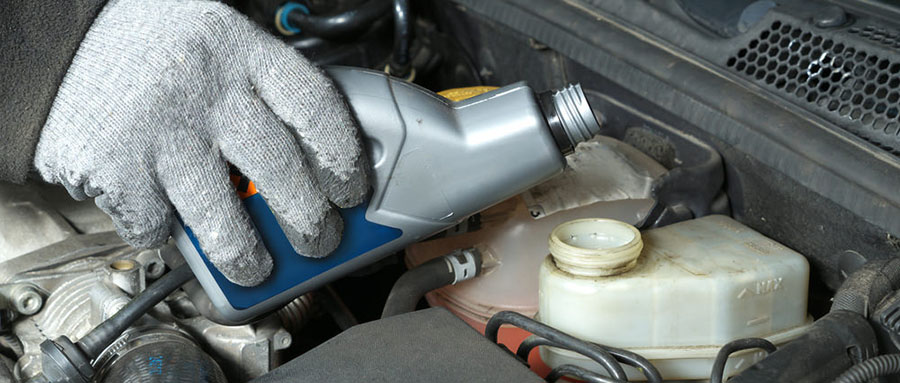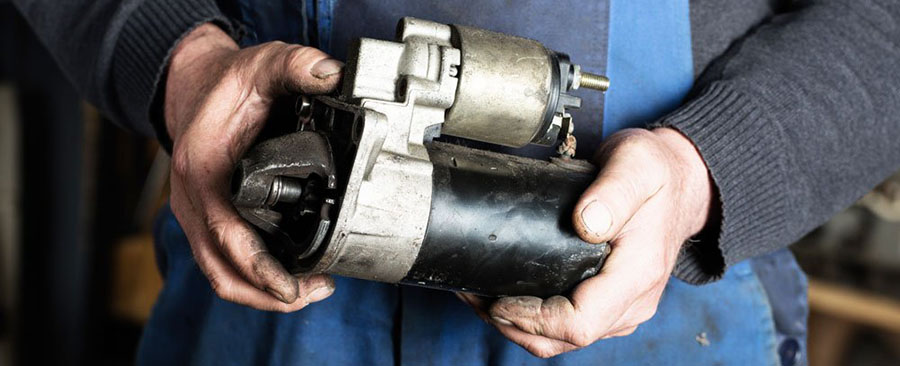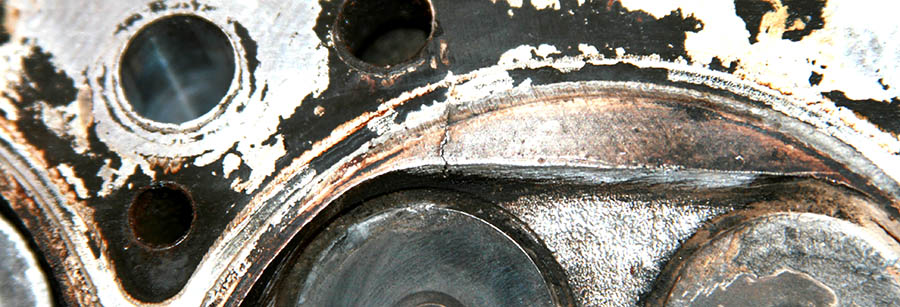Checking Your CARS Fluids – One of the easiest things you can do at home to keep your car in good running shape when you’re driving around Pasadena is to check and maintain your fluid levels. Keeping your fluids at their proper levels can save you unnecessary engine wear or damage and save you from needing expensive repairs!
Here are seven fluids that you should pay attention to in order to keep your vehicle in tip top shape:
Oil: oil could be called the lifeblood of your engine. Your engine needs oil to keep all of the moving parts inside it lubricated so that they don’t grind and wear each other down within minutes. To check your oil, open your vehicle’s hood and locate the dipstick, which is usually a colored ring connected to a long metal rod with markings at the bottom to indicate the oil level. To check the level, pull the dipstick out, wipe it clean with a cloth or towel, dip it all the way back into the oil tank, then pull it back out and see where the oil line is. If it is too low, add some oil through the oil filler cap, usually labeled “oil” and located on top of one of your engine’s valve covers. Healthy oil should be a clear golden color; if it is dark brown, it is getting dirty and needs to be changed. If it is the color of chocolate milk and thicker than usual, you should get it checked right away – you most likely have a head gasket leak, which could quickly destroy your engine if you continue to drive.
Transmission fluid: transmission fluid is responsible for keeping your transmission lubricated, helping prevent many expensive problems from developing. Transmission fluid is usually also checked by a dipstick, with the same method that you should use to check oil – pull it out, wipe it, and dip it back in to check. You should also check the quality of the fluid by rubbing some onto your fingers to see if it is the right color and consistency. If it smells burnt or feels gritty, then you’ll know that it’s time to change your transmission fluid.
Coolant: coolant is responsible for keeping your engine from overheating. If you are low on coolant, you can overheat in traffic or at a light. You should be able to check your coolant level by looking at the coolant tank, which will have marks for low and full on it. If your coolant level is below the low mark, you should add more as soon as you can – overheating can blow a head gasket, or even warp other, harder to repair parts.
Power steering fluid: power steering fluid keeps your car’s power steering working by lubricating it and adding power to your steering so that it isn’t as hard to turn your wheels. To check the power steering fluid, find the reservoir and check what level it is at. If you are low on power steering fluid, just add some more through the filler cap until it is at the proper level. If your fluid level is low, you should also check for leaks.
Brake fluid: brake fluid is pressurized and boosts the power of your braking hydraulically, similar to power steering fluid. It is harder to check your brake fluid; usually you have to locate your vehicle’s master cylinder, which may not be labeled, and pry off an unmarked cap. If you check your brake fluid yourself, make sure to clean off the outside of the tank first, as any dirt in the fluid can damage your braking system. The fluid level should be within half an inch of the cap, and light in color. If your fluid is low or dark, we can help you replenish or replace it here at your Certified Auto Repair Specialist.
Air conditioning coolant: especially here in Southern California, you’ll want to make sure that your air conditioning is ready for our hot summers. To do this, you’ll want to check the coolant (also known as refrigerant or Freon) level in your air conditioning system. You need special tools to check this – if you can’t figure out how to do it, bring your car in today for a check and evaluation.
Washer fluid: your windshield wiper fluid doesn’t do anything for your engine and won’t damage anything important if you neglect it, but even in sunny Southern California it’s important to keep your windshield wipers and washer fluid in good condition. So many people in Pasadena are caught by surprise at every storm and have old, worn wipers and fluid, leaving dirty streaks across their windshields. You don’t want that to be you next time we have a storm – not being able to see clearly is dangerous not only for you but the drivers around you. By checking your wipers and washer fluid, you can prevent an inconvenience to yourself, and potential accident.
If you’ve noticed that you’re low, have a leak, or need to change any of these fluids, call your Certified Auto Repair Specialist of Pasadena today to schedule an appointment. We can take care of any of your car problems, so give us a call.







